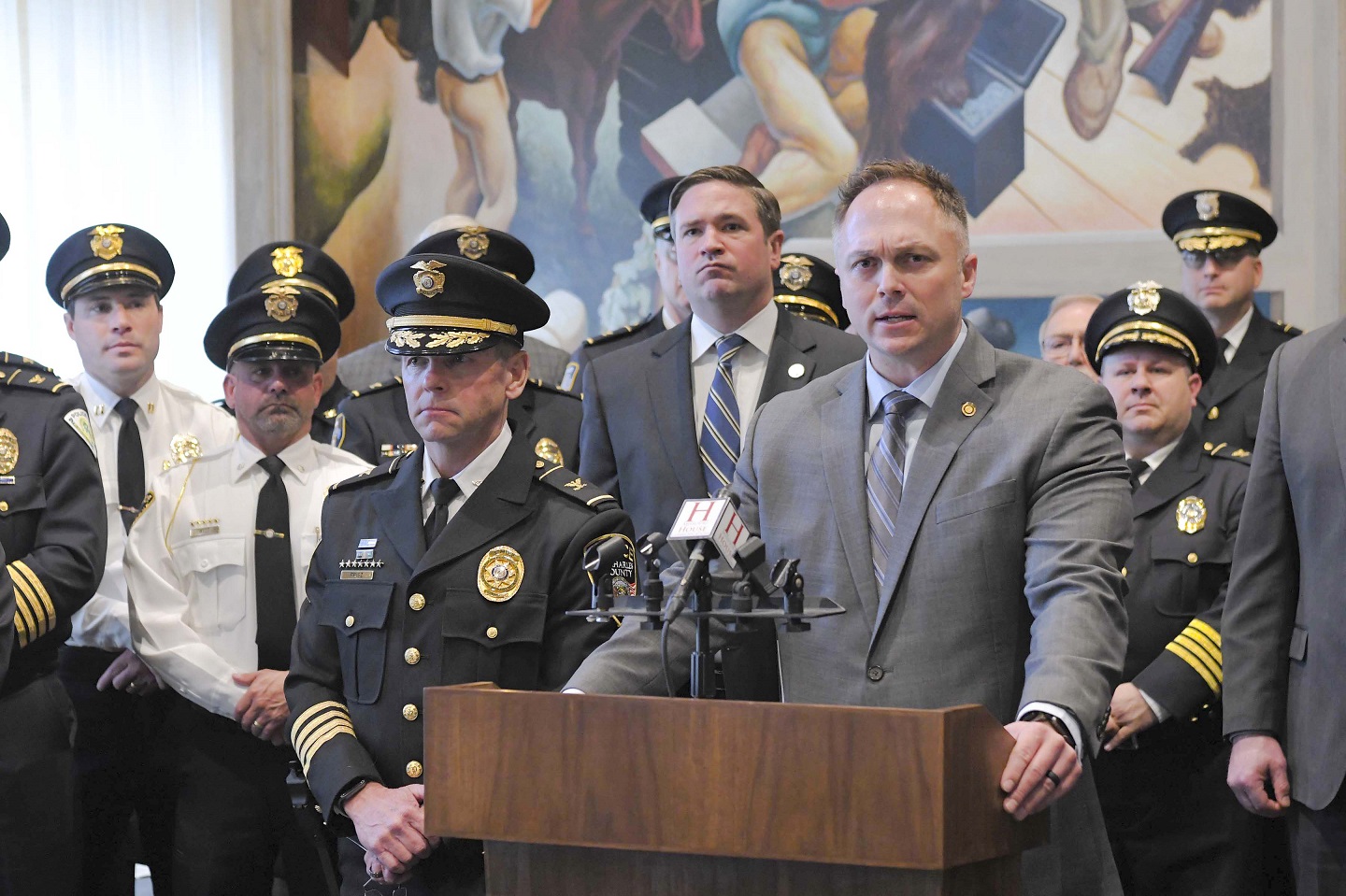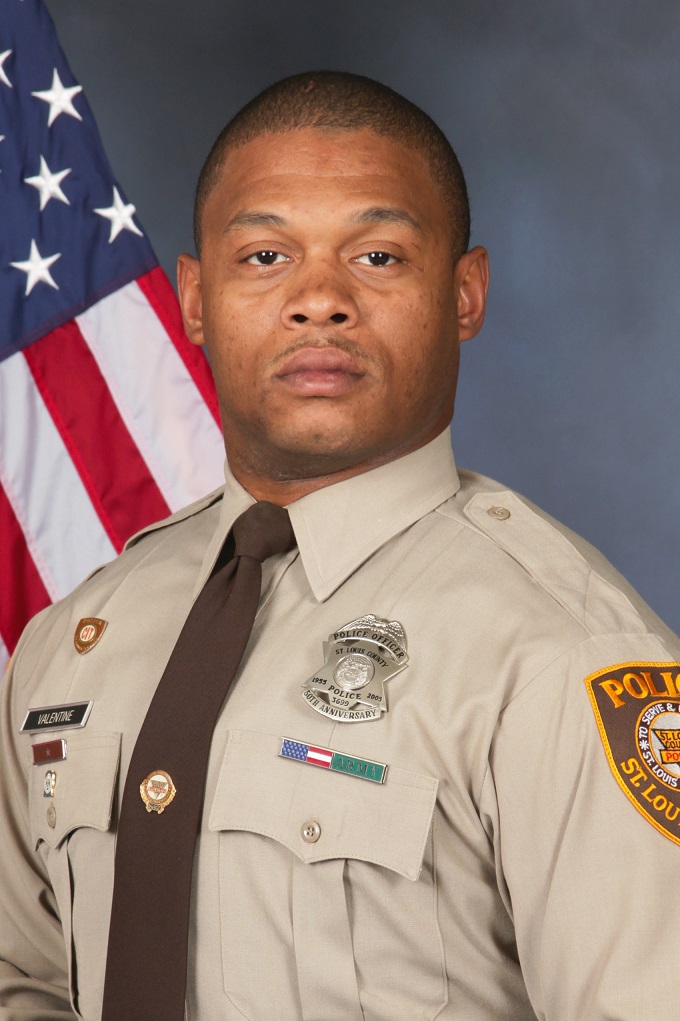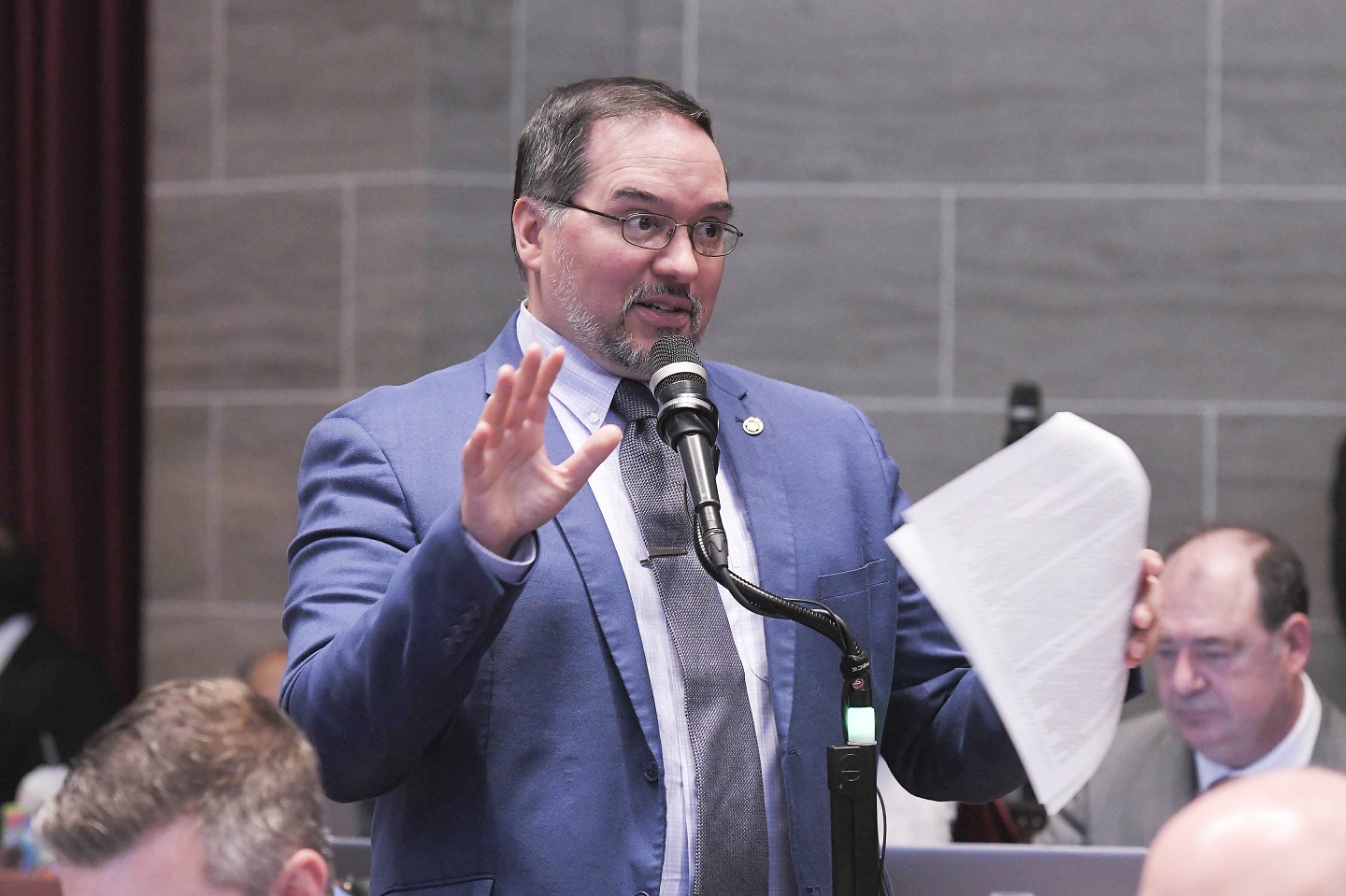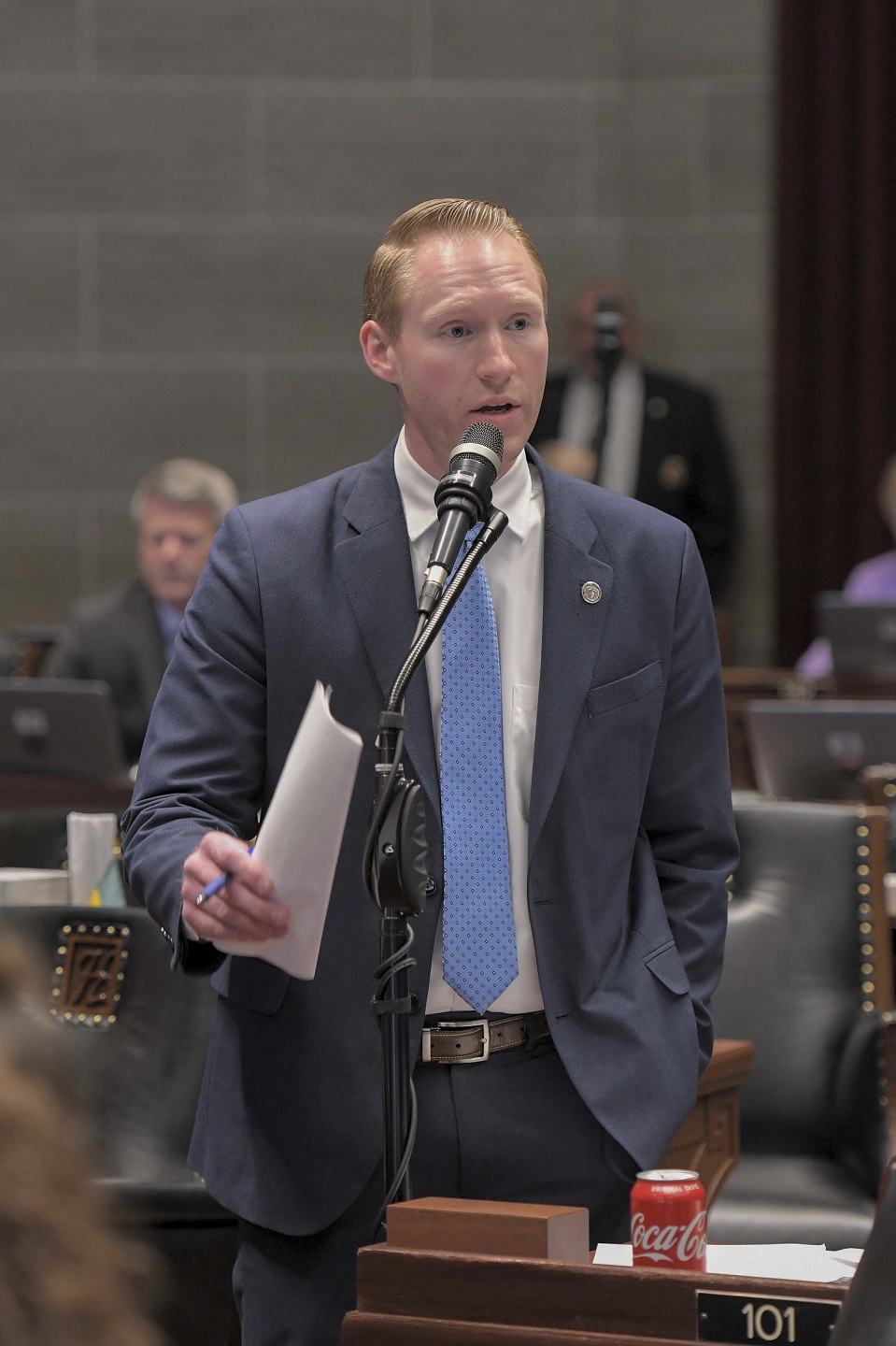The Missouri House this week voted to increase the criminal penalties for resisting or interfering with an arrest, or fleeing from law enforcement. The bill is named in honor of a St. Louis County Police Detective who was killed by a fleeing suspect, in 2021.
That was the opening statement from Representative Justin Sparks (R-Wildwood), the sponsor of House Bill 1692. Sparks was with the St. Louis County Police Department for nearly 15 years. He knew Detective Tony Valentine personally, and was on the scene when he died.
Sparks was certainly not the only House member to speak in favor of the legislation with passion borne of personal experience. Representative Lane Roberts (R-Joplin), whose career in law enforcement spans decades, including as Joplin Police Chief and the state’s Director of Public Safety, said he knows what it’s like to lose friends and to lose those under his command.

In a display of the bill’s bipartisan support, Representative Robert Sauls (D-Kansas City), agreed. His career includes time as both a Jackson County prosecutor, and as a public defender.
“There are a couple of offenses that I think, maybe, the penalty might be too harsh, and there are some where I think it is too light, and this is one that I think is, in particular, too light, because of what the ultimate harm may potentially be,” Sauls said. “This offense has the potential to kill and harm people and I just think … it’s one of the few that I think is too soft.”
“This applies to the violent felons who know exactly what they’re doing and who accelerate at extreme speeds into oncoming traffic, putting everybody at risk,” Sparks explained.
A person would violate Valentine’s Law if they reasonably know law enforcement is trying to stop them and they flee at a speed 10 miles per hour or more greater than the posted speed limit, and if, in doing so, they pose a risk of physical harm or death to any person.
The offense would be a class D felony with a one-year minimum prison sentence. It would increase to a class B felony if, by fleeing, they cause serious physical injury to another person. It would become a class A felony if by fleeing they cause another person’s death.
The bill also adjusts the circumstances for when resisting or interfering with arrest is a class A misdemeanor and when it is a class E felony. If such an act is committed with the use of a deadly weapon or dangerous instrument, or involves taking someone hostage, it would be a class A felony.
The House voted 107-25 on Wednesday to send HBs 1692 & 1748 to the Senate, where versions of Valentine’s Law have been advanced out of a committee and a bill that includes it has been passed and sent to the House.


